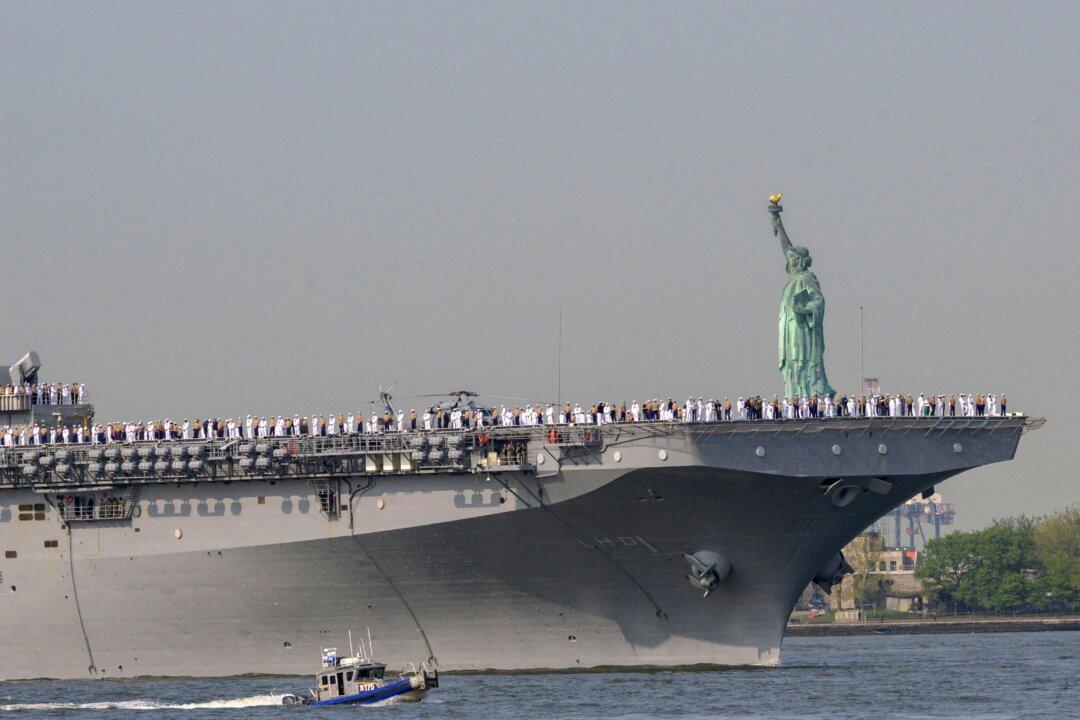The Kingdom of Saudi Arabia (KSA) is considering a major defection from its long-standing economic alliance with the United States. The likely winner would be China.
This fits the Chinese Communist Party’s (CCP) goal to become globally hegemonic, as oil pricing in yuan would increase the yuan’s value and decrease the value of dollars, making it harder for the United States to issue debt and export goods. Countries around the world would start dumping the dollar as a reserve currency.
Inflationary pressure would lead to a downward spiral in the dollar’s value. This would be a long process, but Beijing is now making headway in Riyadh, the Saudi capital. The Organization of the Petroleum Exporting Countries (OPEC), plus Russia, would likely follow the kingdom’s lead, and start regularly pricing oil in currencies other than the dollar.
“The Saudi central bank had assets worth $492.8 billion at the end of January, including $119 billion in U.S. Treasuries,” according to Reuters. “The government had foreign currency debt—mostly in dollars—of $101.1 billion at the end of 2021, while the Saudi sovereign wealth fund held $56 billion in U.S. equities.”
While for the above reasons analysts say a major Saudi shift to yuan pricing is unlikely, some do admit the possibility of some Saudi oil pricing in yuan, which would be water over the dam, allowing for more such pricing, and pricing in other non-dollar currencies as well. Every purchaser of oil is likely to want oil priced in its own currency if it sees the floodgates breached by Beijing.

If Riyadh did move away from the dollar, perhaps also to a basket of world currencies, as was proposed decades ago, it would therefore be a major global change in oil pricing. The cause would not only be China’s rise, but the Biden administration’s deteriorating relations with the KSA, which throughout the Cold War helped the United States and its allies through oil policies that attempted to stabilize the price and maintain the flow.
After the 1979 revolution in Iran, which turned it anti-Western, the Saudis and most other Arab countries remained staunchly allied to the United States. Riyadh supported Washington throughout the Cold War, Iraq wars, and during the Afghanistan war. The United States also supported the Saudis during this period, defending the country, along with its Kuwait ally, from the Iraqi threat.
The Trump administration attempted to maintain a positive relationship with Saudi Arabia, visiting for photo shoots with the aging king, selling jets, and avoiding all questions of the country’s human rights abuse, including in the Yemen War, which is fought by Houthis backed by Iran. Almost no mention was made of the 2018 killing of journalist Jamal Khashoggi at the Saudi Consulate in Istanbul, Turkey.

Democrats made much of this non-confrontational approach to the Saudis. But the Biden administration’s shift to a more confrontational stance is having negative second- and third-order effects on America’s weightier and less avoidable conflict with Beijing.
President Joe Biden has been publicly critical of Saudi Arabia’s de facto leader, the Crown Prince Mohammed bin Salman Al Saud (also known as MBS). Perhaps due to the alleged human rights violations, Biden refuses to deal with the prince directly, instead demanding to deal with his 86-year-old father, King Salman bin Abdulaziz Al Saud, who has already passed the baton.
Biden’s failure to effectively distinguish between authoritarian allies and adversaries in the overarching conflict with Beijing likely hurt his relationship with the Saudis.
By effectively binning U.S. allies—who admittedly have their human rights problems but are very regional—in with America’s most dangerous adversaries, led by a genocidal Beijing that aspires to global hegemony, the Biden administration needlessly drove the former towards the latter.





